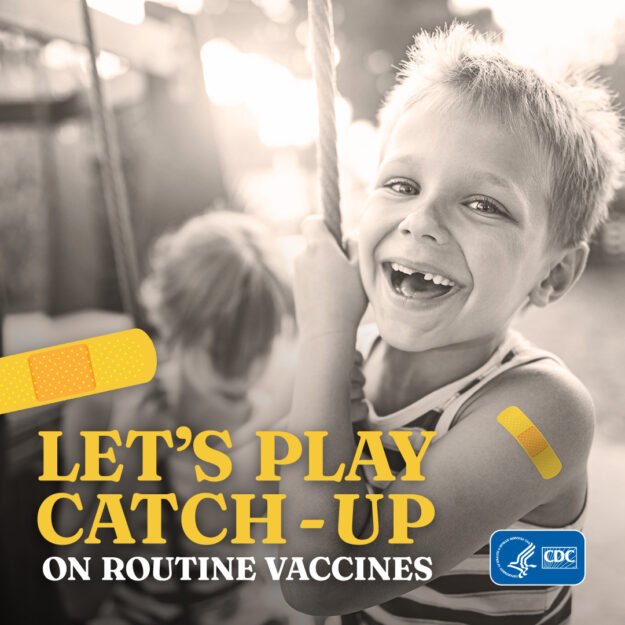Webmaster Kerry Kirkpatrick writes the Canyonlands Healthcare News to provide education about healthcare issues affecting Arizona & Nevada communities and the services provided by Canyonlands Healthcare.
Help Your Child Maintain a Healthy Weight Being overweight as a child increases the risk of being overweight or having obesity as an adolescent and young adult. Being overweight or having obesity can also lead to serious problems: Asthma Type 2 diabetes Sleep problems Heart disease Bone and joint problems Being overweight or having obesity…
Keep on Track with Your Child's Vaccinations Well-child visits and routine immunizations are important. Routine childhood vaccinations are an important way to ensure that your child remains healthy and protected against serious diseases, like measles and whooping cough. Check with your child’s doctor to make sure they’re protected against vaccine-preventable diseases. You have the power…
Schedule Your Child's Wellness Exam and Sports Physical Canyonlands Healthcare is scheduling Well Child Visits for all children. Well-child visits are essential for many reasons, including: Tracking growth and developmental milestones Discussing any concerns about your child’s health Getting scheduled vaccinations to prevent illnesses like measles and whooping cough (pertussis) and other serious diseases Sports Physicals…
The Difference Between Hepatitis A, B, and C Hepatitis A, hepatitis B, and hepatitis C are liver infections caused by three different viruses. Although each can cause similar symptoms, they are spread in different ways and can affect the liver differently. Hepatitis A is usually a short-term infection. Hepatitis B and hepatitis C can also…
Summer Safety in Arizona Canyonlands Healthcare urges you to review these safety precautions to protect yourself and others. Arizona offers wonderful opportunities to enjoy the outdoors, but even the most informed and careful enthusiasts can find themselves in changing elements: sun, wind, water and fire. Don’t let yourself get caught off guard by unexpected weather…
Signs and Symptoms of a Mental Health Condition 1 in 5 Americans currently live with a mental health condition. More than 51 million adults in the United States face the reality of managing a mental illness every day. Amidst a growing crisis, Canyonlands Healthcare joins the National Alliance on Mental Health to educate and provide…
Colon Cancer on the Rise for Younger People Colorectal cancer cases among adults ages 20-49 is increasing, according to a report released by the American Cancer Society. Colorectal cancer in this younger age group is estimated to become the leading cause of cancer-related deaths in the United States by 2030. Colorectal cancer is the third…
Best Practices for a Healthy Heart The Top 3 Risks for Heart Disease High blood pressure. Millions of Americans of all ages have high blood pressure. Having uncontrolled high blood pressure is one of the biggest risks for heart disease and other harmful conditions, such as stroke. High blood cholesterol. High cholesterol can increase the risk for…
Think Before You Drink Alcohol and sugary drinks contribute calories and raise glycemic levels. Consuming excessive amounts of sugar and alcohol can lead to higher risks of heart disease, fatty liver, high blood pressure, and diabetes. Skip liquid sugar If you are thirsty, consider drinking water for thirst instead of a sugary drink. it is…
Symptoms of an Infection with BQ.1 and BQ.1.1 The subvariants BQ.1 and BQ.1.1 account for nearly 70 percent of cases in the U.S. in December 2022, according to the Centers for Disease Control and Prevention. People infected with these subvariants also tend to report cold-like symptoms: sore throats headaches runny noses fever and night sweats…










